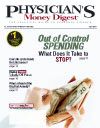Publication
Article
Medical Misconduct, Part I: Why You Should Be Worried
Author(s):
The same week authorities took JonBenet Ramsay's suspected killer into custody, the news exploded about Dr. Vic Colucci.* Dr. Colucci lost his license to practice medicine. Local newspapers and television stations highlighted the story, although Dr. Colucci was incommunicado. When the medical community found the Internet site detailing 40-plus pages of case descriptions leading to his ultimate "diagnosis" of negligence and incompetence, they could not believe this was the nice guy they knew—or thought they knew.
*Names and details changed.
Professional misconduct generates more doctors' lounge venom than malpractice, hospital administrators, and insurance companies combined. While physicians master malpractice minefields, few learn about misconduct—until they're investigated.
Misconduct vs Malpractice
How does misconduct differ from malpractice? Misconduct determination isn't outcome-based and doesn't require provable patient harm. Another distinction—lose a malpractice case and insurance rates climb; lose in the misconduct arena and someone potentially signs DNR orders for your medical license.
One goal of the Federation of State Medical Boards (FSMB; www.fsmb. org), representing 70 state and territorial medical and osteopathic boards, remains protecting the public from harm. Another goal provides physicians with "a way to protect the integrity of their profession."
The 10th Amendment authorizes each state to develop a Medical Practice Act, describing appropriate medical practice and regulatory responsibility of its medical board in protecting public welfare, investigating professional misconduct allegations, and disciplining physicians and physician assistants.
State-to-state Variations
Statutes, laws, and definitions vary among states, but the FSMB Web site's link to the directory of state medical boards bridges you to your state's specifics. Some states consider loitering or operating motorized watercraft while intoxicated reportable misdemeanors. Omission on license or hospital applications of long-forgotten peccadilloes could catalyze investigation. State Web sites also describe specific cases resulting in board actions. Studying disciplinary actions provides formidable education.
While you're grumbling that some gestapo could make life hell for loitering, surf FSMB links for Arizona, Maine, New York, New Jersey, South Carolina, and Virginia, searching for "actions." These states proffer unabridged board orders. In addition to fascinating clinical horrendiomas, you’ll discover physician rapists, thieves, child pornographers, and imprisoned murderers serving life sentences—enough fodder for a season of Law & Order episodes.
Would you refer your family or patients to some of the physicians you're reading about? You work harder proving yourself to patients who previously encountered "colleagues" undermining the profession. This underscores the FSMB's mission in protecting your integrity.
Most medical school graduates take the Hippocratic Oath, neoHip, or original rendition, written about 2500 years ago. Despite effluvia of MRIs, HMOs, and third-generation cephalosporins, not much has changed regarding misconduct since Hippocrates practiced.
The concluding phrase of Hippocrates' original version stated, "If I keep this oath faithfully, may I enjoy my life and practice my art, respected by all men…but if I swerve from it or violate it, may the reverse be my lot."
J. Thalia Cunningham, MD, FACEP, works with New York’s Office of Professional Medical Conduct and practices emergency medicine. She welcomes questions or comments at thalia@nycap.rr.com.
